Toyota EV tech details; EV tax credit controversy; Tesla, Hertz, and Uber: The Week in Reverse
Which company aims to help install 40,000 more destination chargers?
Which EV startup plans to use Panasonic cylindrical cells, like Tesla?
This is our look back at the Week In Reverse—right here at Green Car Reports—for the week ending October 30, 2021.
In a review update of the 2021 Kia Sorento Hybrid, we found that it meets the mark on value and keeps true to its claimed 37-mpg combined rating—although we’re not entirely comfortable with the styling or third-row usefulness.

Toyota BZ4X concept – 2021 Shanghai auto show
In product news, we learned about two eagerly anticipated upcoming plug-in products. Toyota presented an unexpectedly long list of technology talking points in its bZ4X electric car (above), due soon—although you might need to wait a while for the Tesla-style steering yoke or bi-directional charging. And Mitsubishi provided details regarding its 2023 Outlander Plug-In Hybrid (below), due to arrive in North America later in 2022. And with 40% more electric motor power, one-pedal and off-road driving modes, and a big 20-kwh battery pack possibly good for more than 40 miles of range, it could arrive as a strong rival for the Toyota RAV4 Prime.
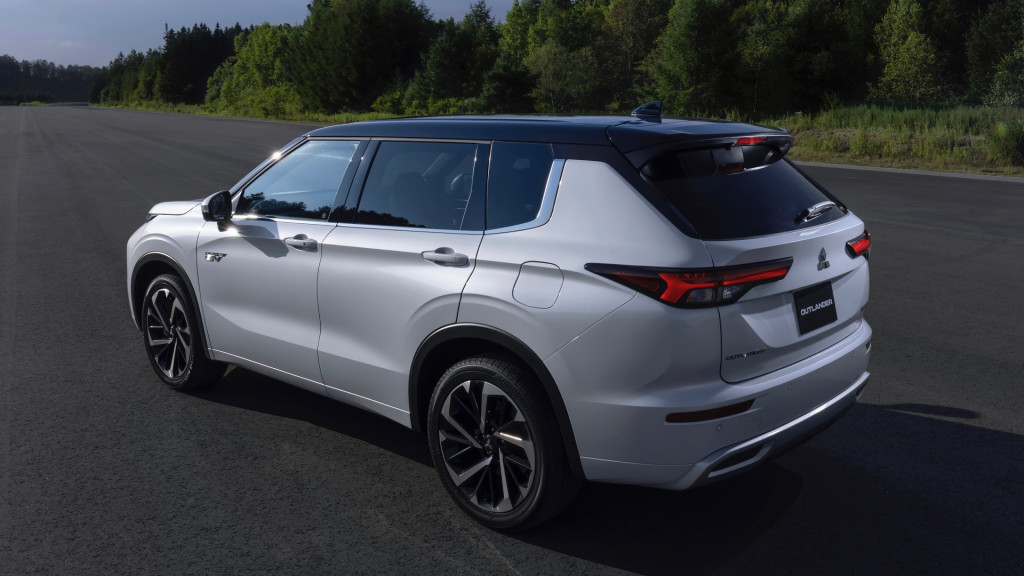
2023 Mitsubishi Outlander Plug-In Hybrid
As we pull this weekly update together, controversy continues to brew over the reform of the EV tax credit. Volkswagen of America CEO Scott Keogh spoke out against the Biden Administration’s proposed tax-credit bonus for union-made electric cars, calling it fundamentally wrong. Tesla, Honda, Toyota, other automakers, and governors of some states have also pushed back about the union requirement. Despite that collective pushback, the Biden administration included that provision in a Thursday release of a Build Back Better framework it sees as able to pass both houses of Congress.
Looking back to the start of the week, the rental-car giant Hertz dropped a Monday morning surprise with plans to add 100,000 Tesla models to its fleet—and with a mention that the convenience of the Supercharger network helped sell it. A couple days later, the enormity of the commitment became clearer, with Hertz’s plans to offer the Tesla Model 3 to Uber ride-hailing drivers for $299 a week, insured. Hertz is starting the program with 50,000 of the initial 100,000 for Uber duty, but it has the option to triple the Uber program to 150,000—meaning within a couple years Hertz might have bought 200,000 Teslas.
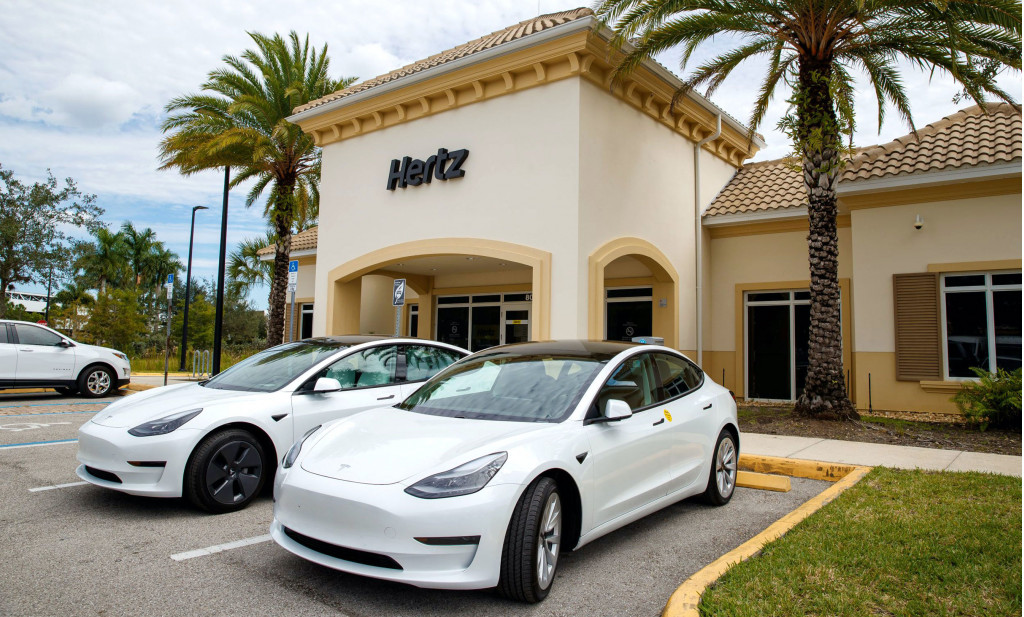
Tesla at Hertz
Tesla’s CFO, during last month’s quarterly update, noted that the automaker was caught off-guard by a “profound awakening” of electric vehicle desirability that’s amplified the complexities around supply chain issues and pricing.
GM announced plans to use its network of about 4,500 franchised dealers to create 40,000 more Level 2 destination-charging connectors. Up to 10 chargers will be available per dealership.
The Mercedes-Benz EQC electric SUV, which was almost launched in the U.S. in 2019, then delayed to 2021, then canceled, is reportedly due back again in its next-generation form in 2025. At this point we’ll believe it when we see it.
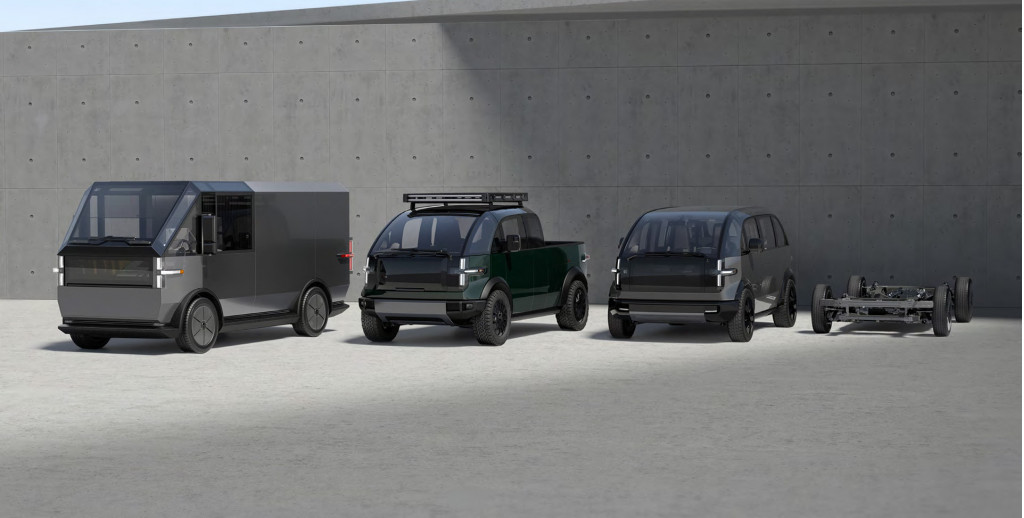
Canoo lineup
Canoo announced that its Lifestyle Vehicle, due by late next year, will get Panasonic 2170-format cylindrical cells, as part of its structural battery that uses integrated modules. Panasonic is also reportedly getting ready to make 4680-format cells for Tesla starting in 2022. The larger cylindrical format was at the center of last year’s Battery Day presentation and an essential piece toward Cybertruck and Semi production.
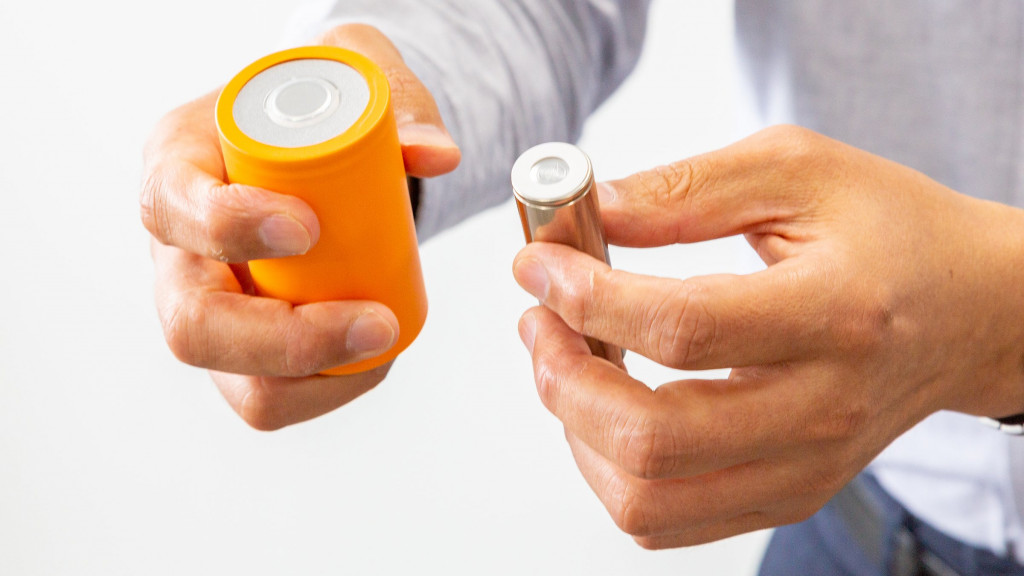
Comparing 4680 vs. 2170 – Panasonic
The battery news continues to charge up our daily feed. Apple is, like Tesla, seeking lithium iron phosphate (LFP) batteries, although its talks with the two Chinese suppliers who could best deliver on its needs—BYD and CATL—have reportedly stalled. And Hyundai Mobis, the captive technology supplier for Hyundai, Kia, and Genesis, has made a partnership with the battery maker CATL for its cell-to-pack tech—perhaps offering future advantages in energy density or lower costs for EVs from those brands. Mobis also said that it’s developing an “e-corner module” that would allow future EVs to have wheels capable of rotating 90 degrees, for rotational parking or sideways “crab walking” in urban situations.

Xpeng 800-volt charging
China’s Xpeng rolled out plans to build out a network of 480-kw, 800-volt-capable charging stations in its home market as part of its infrastructure, alongside a pivot to a new 800V vehicle platform capable of adding 124 miles of range in 5 minutes.
GMC believes that buyers of the upcoming Hummer EV will, as others who buy pickups, be very accessory-motivated. So it’s already planned nearly 200 accessories for the brawny electric trucks.
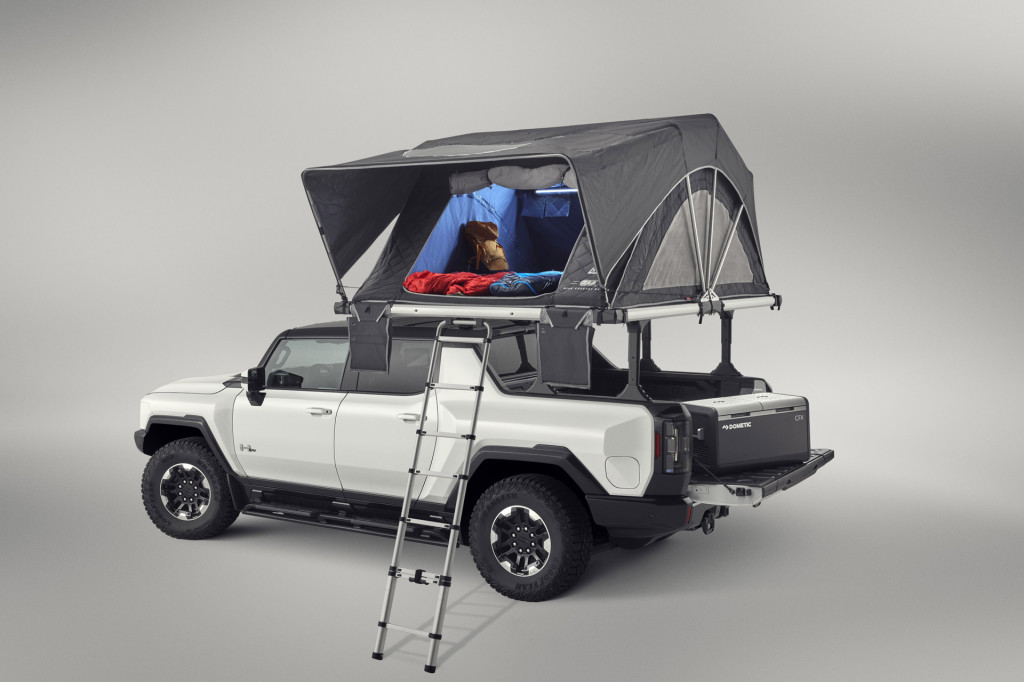
2022 GMC Hummer EV fitted with accessories – 2021 SEMA show
Electrify America is continuing to add some alternate cross-country routes—and that means pushing into Wyoming and South Dakota, with a charging stop near road-trip hallmark Wall Drug, for instance.
And Lucid made its first customer deliveries of the Air Dream Edition in a Saturday event. Although Lucid only plans to make 577 vehicles through the year, it aims to ramp up production with more affordable, higher-volume models in future years.
_______________________________________

